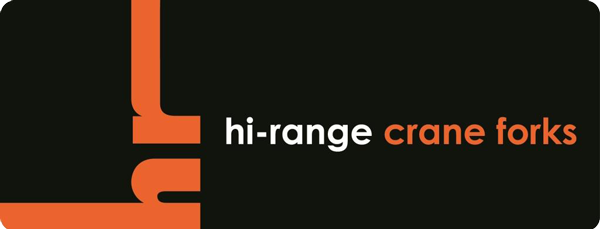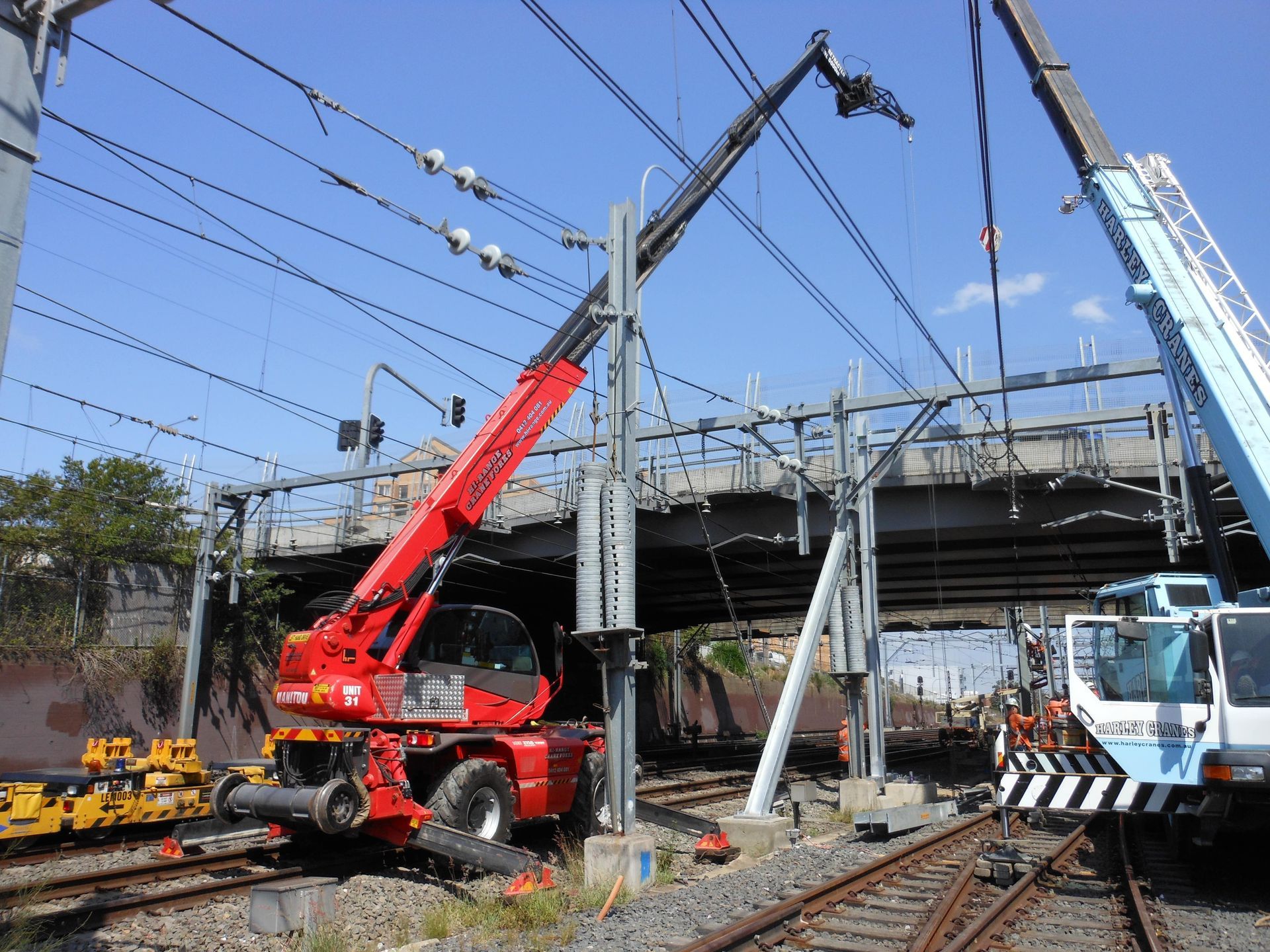20/06/2020
Compared to other kinds of construction, like road and building construction, rail construction is not often obvious, unless you are directly involved or affected by it. Despite often working under the radar, rail construction is some of the most important infrastructure work that can be done. Just like roads, rail connects cities, states and countries, moving resources, materials and peoples hundreds of kilometres a day.
The people that work on rail construction and maintenance are a special group. They’re experts in their fields and are often working in high-risk environments. To be a rain contractor you need specific gear and machines, as well as training and qualifications. More often than not the same contractors will work a range of rail projects across the country, adding to the difficulty people have with understanding the industry.
Here at Hi-Range Crane Forks, we’ve spent over 30 years working on the rails. Despite having other avenues of telehandler work, we find rail construction, maintenance and upgrades are often the most rewarding. When it comes to rail, there often aren’t other ways to get to a destination, trains can’t detour in the same way cars can, so when you’re called onto the tracks for work you know the positive impact will be instantaneous.
Who Works On Rail Construction and Maintenance
Rail construction can range in size from new lines stretching 100’s of kilometres to an extension of a current line another 10 kilometres. The number of workers you need will differ, but the amount of contractors and subcontractors is often the same. Below we break down the predominant contractors you’ll find on any rail construction.
Project Management
The major contractors on rail construction are often well-known construction companies such as CPB Contractors or Lendlease. These contractors bid for the work and use their network of minor contractors and subcontractors to ensure they have all the tools, equipment, materials and expertise required to complete the works.
They also often have expert internal teams that will be assigned to the rail project. They would manage the standard project needs as well as the additional requirements and logistics needed when working with rain lines.
Technical Services
As with any construction, you need a team of brainiacs to ensure that the work you do will last the test of time and positively affect the environment around the project. There is a wide range of technicians you can have working on rail construction, but three that will be on every project are geotechs, rail engineers and rail electricians.
Geotechs are geotechnical engineering contractors that ensure your constructions will be supported by the existing ground conditions, and provide solutions to any potential ground problems. Rail engineering technicians are responsible for the rail construction meeting all safety guidelines as well as logistical needs. Rail electricians are charged with ensuring the rail lines are safely electrified in compliance with any existing lines. They also handle all signalling and level crossing equipment.
Labourers
While we’ve grouped them in as labourers, the workers that complete much of the hard work are experts at what they do. Highly skilled rail labourers are tasked with building the rail lines. From precursory works preparing the site for construction, through to track laying and welding, rail labourers cover it all.
Hi-Rail Plant Hire
The last contractors you’ll find on every rail construction are hi-rail plant hire businesses. This is where the team at Hi-Range Crane Forks slots in. Our hi-rail plant and operators are vital to the installation, repair and replacement of overhead structures amongst other tasks. Other hi-rail plant businesses will supply excavators, trucks, tippers and a plethora of other hi-rail machinery to ensure the rail construction can progress.
For Hi-Rail Hire Choose Hi-Range
When you need telehandlers, cranes or trucks that have hi-rail capabilities, choose Hi-Range Crane Forks. We have years of experience providing hi-rail services throughout New South Wales and have a dedicated team of experienced operators. To organise a one time or ongoing hire get in touch with the team today.
Get a quote on rail track laying and more
Like what you see? Get in touch with our friendly team for more information on what services we can secure for your next rail construction project. Hi-Range Crane Forks can organise and assist with full-service rail construction packages and individual service contracts alike. From track clearing to installing continuous welded rail, our teams can provide assistance to commercial and civil projects of any size and scope across South Australia and New South Wales.

